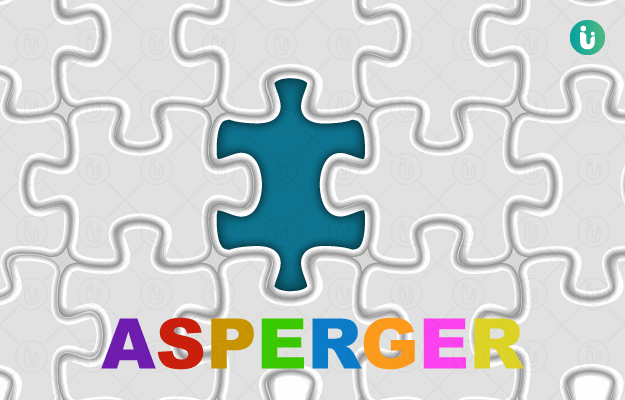What is Asperger’s Syndrome?
Asperger syndrome (AS) is a developmental disorder involving impairment in language and communication skills as well as repetitive or restrictive patterns of thought and behaviour. It is a low prevalence Autism Spectrum Disorder and is characterised by neurological dysfunction that is usually diagnosed in a school‑going child.
What are the main signs and symptoms of Asperger’s Syndrome?
- Obsessive interest in a single object or topic to the exclusion of any other is the typical symptom of AS
- Other common symptoms are as follows:
- Difficulty in forming relationships
- Difficulty in communication despite retaining good communication skills
- Inappropriate social and emotional behaviour
- Insistence for repetitive routines and patterns
- Poor motor coordination
(Read more: Obsessive Compulsive Disorder)
What are the main causes of Asperger’s Syndrome?
- Development of AS is mainly due to genetic, biological, and environmental factors.
- Children with a sibling having AS are more likely to have the disorder.
- There is an increased risk of AS associated with certain drugs, such as valproic acid and thalidomide, when taken during pregnancy.
- Late pregnancy increases the risk of the child to AS.
(Read more: Causes of Down Syndrome)
How is Asperger’s Syndrome diagnosed and treated?
- A diagnosis involves assessing the child’s skills and abilities by a paediatrician, often working with a team of speech therapist and psychologist.
- It includes questions about social and emotional abilities, communication skills, learning abilities, movement skills, and special interests.
- What distinguishes children with AS is that they retain their language skills and have average or higher intelligence quotient as opposed to children with other Autism Spectrum Disorders.
Ideally, treatment is emphasised on addressing the core symptoms of AS, which include
- Communication skills with speech therapy
- Motor coordination with occupational therapy
- Focus on obsessive, repetitive routine
- Effective treatment, including social skills training, cognitive behaviour therapy, and medicines for anxiety and attention‑related problems
AS cannot be completely cured, but support, understanding, and training can help in the long-term to improve lifestyle.
(Read more: ADHD treatment)

 Doctors for Asperger Syndrome
Doctors for Asperger Syndrome 


















